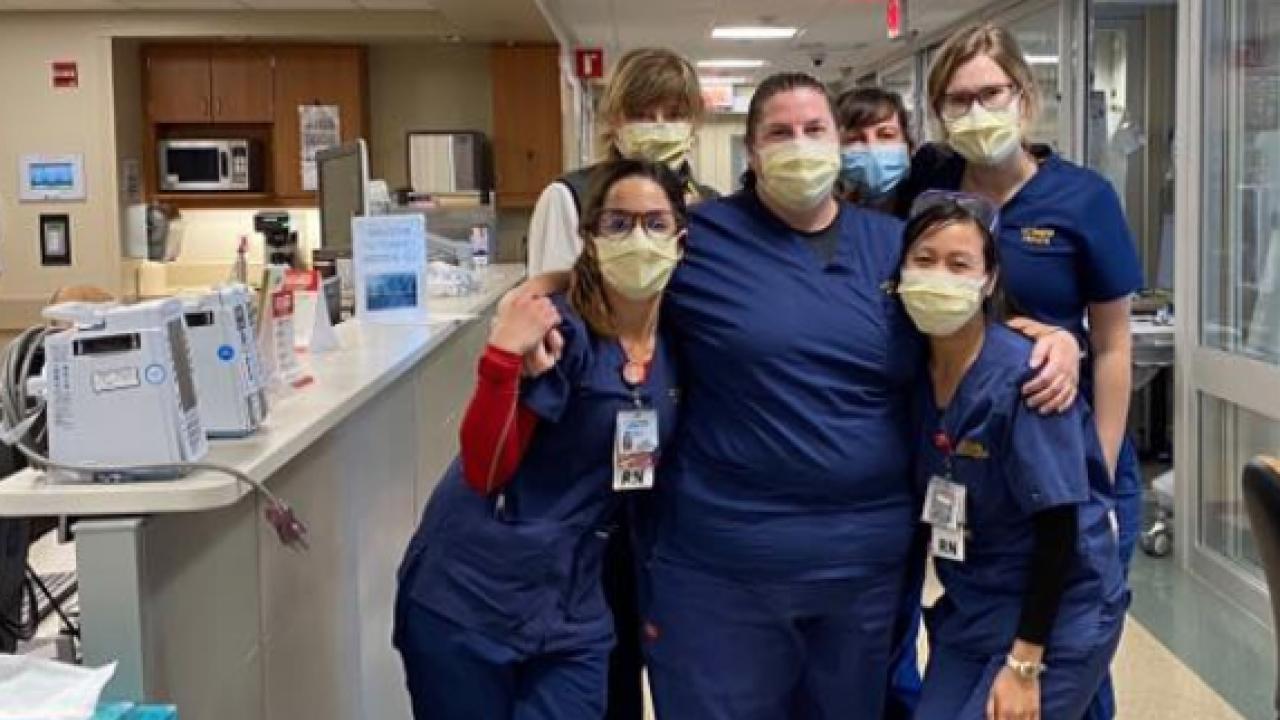
Aggie Hero: Julie Amaro
Note: This month, UC Davis honors all of its heroes on the front lines. Aggie Hero and UC Davis Health nurse Julie Amaro is a representative of the front line heroes; but there are so many more who have been instrumental in the university’s battle against COVID-19.
Sometimes nurses get sick; it’s a hazard of the job.
But when Julie Amaro, a nurse in the Medical Intensive Care Unit at UC Davis Health developed a cough on a Wednesday in March, she said she still “felt fine.”
HEROES ON THE FRONT LINES
We salute the many heroes at UC Davis Health, including:
Department of Internal Medicine, including the Division of Infectious Diseases and Division of Pulmonary, Critical Care and Sleep Medicine
Department of Emergency Medicine
Department of Pathology and Laboratory Medicine
Department of Psychiatry
UC Davis Medical Center staff on Davis Tower 14, Davis Tower 12, Medical Surgical Intensive Care Unit (MSICU) Gold, MSICU Blue, Medical Intensive Care Unit (MICU), Cardiothoracic Intensive Care Unit (CTICU) and respiratory therapists.
By that Saturday, however, Amaro had fever, chills, extreme fatigue and loss of appetite. When her COVID-19 test results came back positive, she was not surprised.
And when her boss asked her, “What do you want me to say?” — because her own privacy protection could keep her story from being shared — Amaro said emphatically: “Tell them I got it! ... It’s not a joke, it’s the real deal, and it can hit you hard.”
Her case of COVID-19 did hit her hard, including 10 days at UC Davis Medical Center, with three of those in the ICU.
While Amaro was surprised by how much the virus took out of her — she laughed when explaining it took her weeks after her discharge to be able to walk the half-mile to get to her local donut shop where she “wanted my chocolate donut!” — she was anxious to get back to her unit.
“I love work,” Amaro said, and missing it was hard on her. “I love what I’m doing as a nurse, the types of patients I see, (and) my coworkers are fabulous.”
And 28 days after being symptom-free, Amaro was able to donate “convalescent plasma.” The antibodies in a recovered COVID-19 patient’s blood are being studied to see if they can help sick patients.
“I missed out being on the front lines” while sick, Amaro said. “Being a plasma donator made me feel like I’m helping.